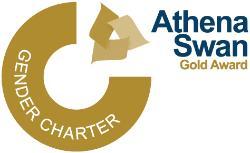Promoting a more inclusive, diverse, and equitable learning environment
Published: 23 October 2023
PGT student Er-Ane Ubebe reports back on an important initiative aimed at fostering a student experience that embeds different cultures and histories, and improving cultural sensitivity among both staff and students
Evaluation of a university curriculum is essential in promoting a more inclusive, diverse, and equitable learning environment. To promote this, an EDI (equality, diversity and inclusion) and DtC (decolonising the curriculum) sub-working group was set up within the School of Health and Wellbeing's Athena Swan undergraduate and PGT group. Two of the members, of which I was one, were students from the Master of Public Health programme.

The primary objective of this group was to analyse the current state of diversity within existing curriculum and to identify potential gaps and areas of improvement that could pave the way for a restructuring process, if needed, aimed at fostering a more well-rounded educational experience at the university.
A core course was selected by the members of the group and, using an analytical tool known as the "whose W.O.R.D.D. counts?" (see below), the extent to which diversity is integrated into the contents of the coursework was evaluated.
| W | Writing with the audience in mind |
| O | Opportunities for the exchange of experiences |
| R | Representation through different lenses |
| D | Drawing on different student experiences |
| D | Diversity as the subject matter |
Each member of the group assessed the topics covered during the lectures and seminars of the Principles of Public Health course and a general consensus was reached on the significance of seminars in promoting diversity and the inclusion of excellent case studies in the lecture materials that helped showcase diversity in the context of varying populations.
Overall, no radical changes were deemed necessary, but as there is always room for more diversity and inclusion, recommendations were made towards this. For instance, a swap to 2-hour seminars and 1-hour lectures was suggested as the seminars proved to offer more room for expression. Also, further development of the reading lists, the use of more visuals to portray inequalities and more conversations or cases on marginalised groups.
I believe involving students (PGT volunteers) in the EDI and DtC group ensured that the curriculum analysis resonated more with the needs of the student population. Having gone through the coursework personally, and from our interactions with our fellow students, it is easier to identify the areas of improvement in the course and suggest creative strategies. As students, we were able to highlight the areas that were more relevant and how this could be tailored to the needs of future students.
As an international student, I truly appreciated this project. It is important to feel included and represented within the university. This analysis fosters a more comprehensive and diverse learning experience for students that also reflects the university’s understanding of our different cultures and histories and helps improve cultural sensitivity among both staff and students.
Er-Ane Ubebe
Master of Public Health student
School of Health and Wellbeing
First published: 23 October 2023


